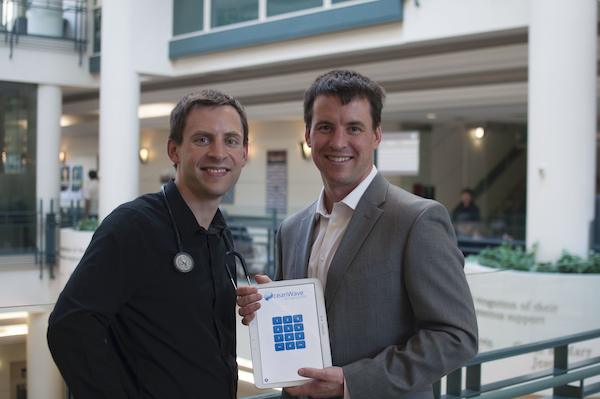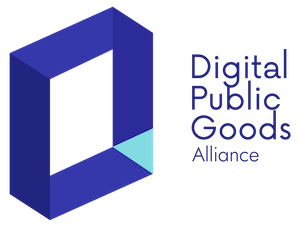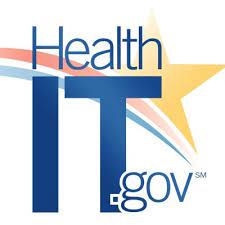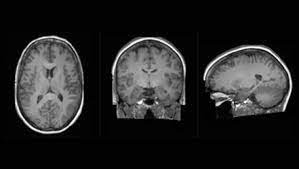News Clips
WELL Health Expands Virtual Care, Acquires CognisantMD
 WELL is pleased to announce the acquisition of CognisantMD whose Ocean platform includes a full suite of virtual patient engagement tools, including online appointment booking, secure messaging, appointment reminders, and digital forms as well as in-clinic check-in kiosks and tablets. Each month, Canadians complete over 800,000 patient engagements with their healthcare providers using Ocean's digital tools. Ocean has built unparalleled interoperability, with integrations into over 18 EMRs, Electronic Health Records (EHRs), and provincial healthcare assets and third-party technology platforms using industry-leading open standards including HL7 FHIR5.
WELL is pleased to announce the acquisition of CognisantMD whose Ocean platform includes a full suite of virtual patient engagement tools, including online appointment booking, secure messaging, appointment reminders, and digital forms as well as in-clinic check-in kiosks and tablets. Each month, Canadians complete over 800,000 patient engagements with their healthcare providers using Ocean's digital tools. Ocean has built unparalleled interoperability, with integrations into over 18 EMRs, Electronic Health Records (EHRs), and provincial healthcare assets and third-party technology platforms using industry-leading open standards including HL7 FHIR5.
- Login to post comments
HLN's Immunization Calculation Engine (ICE) chosen as a Digital Public Goods Standard
 HLN Consulting is thrilled to announce that the Immunization Calculation Engine (ICE) project has been chosen by the Digital Public Goods Alliance (DPGA) as an innovative openly licensed technology and listed in their Digital Public Goods registry. Technologies included in the list are considered to be digital public goods in alignment with the Digital Public Goods Standard. ICE now appears in the Digital Public Goods registry where it is discoverable as a digital public good and reflected on a growing network of catalogs and aggregated lists of digital public goods.
HLN Consulting is thrilled to announce that the Immunization Calculation Engine (ICE) project has been chosen by the Digital Public Goods Alliance (DPGA) as an innovative openly licensed technology and listed in their Digital Public Goods registry. Technologies included in the list are considered to be digital public goods in alignment with the Digital Public Goods Standard. ICE now appears in the Digital Public Goods registry where it is discoverable as a digital public good and reflected on a growing network of catalogs and aggregated lists of digital public goods.
- Login to post comments
European technology companies launch Coalition for Competitive Digital Markets
 A group of 23 technology companies operating in Europe from 14 different countries and a business association of more than 45,000 digital SMEs announced today a new coalition to advocate for fair rules in digital markets. The Coalition for Competitive Digital Markets aims to contribute to a more balanced and open digital environment. Today’s internet is dominated by services and products offered by a small number of dominant online platforms, such as Apple, Google, Facebook and Amazon. These so-called “gatekeepers” control consumers’ access to information and abuse their position in order to limit market access for European businesses that offer alternative business models and services such as search, email, social media, operating systems and browsers.
A group of 23 technology companies operating in Europe from 14 different countries and a business association of more than 45,000 digital SMEs announced today a new coalition to advocate for fair rules in digital markets. The Coalition for Competitive Digital Markets aims to contribute to a more balanced and open digital environment. Today’s internet is dominated by services and products offered by a small number of dominant online platforms, such as Apple, Google, Facebook and Amazon. These so-called “gatekeepers” control consumers’ access to information and abuse their position in order to limit market access for European businesses that offer alternative business models and services such as search, email, social media, operating systems and browsers.
- Login to post comments
HHS Announces Synthetic Health Data Challenge Winners
 The U.S. Department of Health and Human Services' (HHS) Office of the National Coordinator for Health Information Technology (ONC) today announced $100,000 in total awards to six winners of the Synthetic Health Data Challenge (Challenge). Synthetic health data (i.e., data that is artificially created to mimic real-world data), is important to researchers, health IT developers, and informaticians, among others, who need data to test new ideas until access to secure and actual clinical data is available.
The U.S. Department of Health and Human Services' (HHS) Office of the National Coordinator for Health Information Technology (ONC) today announced $100,000 in total awards to six winners of the Synthetic Health Data Challenge (Challenge). Synthetic health data (i.e., data that is artificially created to mimic real-world data), is important to researchers, health IT developers, and informaticians, among others, who need data to test new ideas until access to secure and actual clinical data is available.
- Login to post comments
Scientists Launch Open Source Computational Platform to Study Biological Processes
 Agent-based simulations (ABS) are powerful computational tools that help scientists understand complex biological systems. These simulations are an inexpensive and efficient way to quickly test hypotheses about the physiology of cellular tissues, organs, or entire organisms. However, many ABS do not take full advantage of available computational power, and the majority of ABS platforms on the market are designed with a particular use case in mind.
Agent-based simulations (ABS) are powerful computational tools that help scientists understand complex biological systems. These simulations are an inexpensive and efficient way to quickly test hypotheses about the physiology of cellular tissues, organs, or entire organisms. However, many ABS do not take full advantage of available computational power, and the majority of ABS platforms on the market are designed with a particular use case in mind.
- Login to post comments
Open Source Initiative Names Stefano Maffulli As First Executive Director
 The Open Source Initiative ® (OSI), stewards of the Open Source Definition that sets the foundation for the open source ecosystem, is excited to announce Stefano Maffulli as its first Executive Director. The appointment is a key step for the transformation of OSI into a professionally managed organization, a process that the Board of Directors started in 2020. After an expansive search led by OSI’s purpose-built staffing committee, the Board of Directors appointed Maffulli, an experienced international leader in enterprise and open source environments.
The Open Source Initiative ® (OSI), stewards of the Open Source Definition that sets the foundation for the open source ecosystem, is excited to announce Stefano Maffulli as its first Executive Director. The appointment is a key step for the transformation of OSI into a professionally managed organization, a process that the Board of Directors started in 2020. After an expansive search led by OSI’s purpose-built staffing committee, the Board of Directors appointed Maffulli, an experienced international leader in enterprise and open source environments.
- Login to post comments
CDC Stands Up New Disease Forecasting Center - To Use Open Source Software and APIs to Expand Data Interoperability
 Today, the Centers for Disease Control and Prevention (CDC) is announcing a new center designed to advance the use of forecasting and outbreak analytics in public health decision making. Once established, the Center for Forecasting and Outbreak Analytics will bring together next-generation public health data, expert disease modelers, public health emergency responders, and high-quality communications, to meet the needs of decision makers. The new center will accelerate access to and use of data for public health decision-makers who need information to mitigate the effects of disease threats, such as social and economic disruption.
Today, the Centers for Disease Control and Prevention (CDC) is announcing a new center designed to advance the use of forecasting and outbreak analytics in public health decision making. Once established, the Center for Forecasting and Outbreak Analytics will bring together next-generation public health data, expert disease modelers, public health emergency responders, and high-quality communications, to meet the needs of decision makers. The new center will accelerate access to and use of data for public health decision-makers who need information to mitigate the effects of disease threats, such as social and economic disruption.
- Login to post comments
ASF Announces Program for ApacheCon@Home 2021
 The Apache® Software Foundation (ASF), the all-volunteer developers, stewards, and incubators of more than 350 Open Source projects and initiatives, announced keynotes, sponsors, and program for ApacheCon@Home, taking place online 21-23 September 2021. Registration is open and free for all attendees. "With dozens of compelling talks on the latest Apache innovations, presented by noted community experts and supported by an impressive roster of sponsors, we expect a record turnout of attendees," said Ruth Suehle, ASF Executive Vice President and ApacheCon@Home co-Chair. "We're excited to enable participants to join us at their own convenience online and to build on the success of last year's inaugural ApacheCon@Home, with nearly 3,500 attendees."
The Apache® Software Foundation (ASF), the all-volunteer developers, stewards, and incubators of more than 350 Open Source projects and initiatives, announced keynotes, sponsors, and program for ApacheCon@Home, taking place online 21-23 September 2021. Registration is open and free for all attendees. "With dozens of compelling talks on the latest Apache innovations, presented by noted community experts and supported by an impressive roster of sponsors, we expect a record turnout of attendees," said Ruth Suehle, ASF Executive Vice President and ApacheCon@Home co-Chair. "We're excited to enable participants to join us at their own convenience online and to build on the success of last year's inaugural ApacheCon@Home, with nearly 3,500 attendees."
- Login to post comments
Health Gorilla and the Puerto Rico Department of Health Reach Milestone in Health Information Exchange Network
 Health Gorilla, the largest interoperability provider in Puerto Rico, in conjunction with the Puerto Rico Department of Health (PRDOH), today announced a milestone achievement following the official launch of the Puerto Rico Health Information Exchange (PRHIE) on July 1st. In the one month since go-live, Health Gorilla has successfully connected 25% of Puerto Rico's population to the PRHIE. This innovative project enables healthcare providers to access and share patient medical record data securely and electronically across more than 400 care sites, 4,200 providers, and more than 700,000 patients.
Health Gorilla, the largest interoperability provider in Puerto Rico, in conjunction with the Puerto Rico Department of Health (PRDOH), today announced a milestone achievement following the official launch of the Puerto Rico Health Information Exchange (PRHIE) on July 1st. In the one month since go-live, Health Gorilla has successfully connected 25% of Puerto Rico's population to the PRHIE. This innovative project enables healthcare providers to access and share patient medical record data securely and electronically across more than 400 care sites, 4,200 providers, and more than 700,000 patients.
- Login to post comments
IBM Report: Cost of Data Breaches Hit Record High During Pandemic - Healthcare Breaches Cost the Most By Far, at $9.23 Million per Incident
 IBM Security today announced the results of a global study which found that data breaches now cost surveyed companies $4.24 million per incident on average - the highest cost in the 17-year history of the report. Based on in-depth analysis of real-world data breaches experienced by over 500 organizations, the study suggests that security incidents became more costly and harder to contain due to drastic operational shifts during the pandemic, with costs rising 10% compared to the prior year...Healthcare breaches cost the most by far, at $9.23 million per incident - a $2 million increase over the previous year.
IBM Security today announced the results of a global study which found that data breaches now cost surveyed companies $4.24 million per incident on average - the highest cost in the 17-year history of the report. Based on in-depth analysis of real-world data breaches experienced by over 500 organizations, the study suggests that security incidents became more costly and harder to contain due to drastic operational shifts during the pandemic, with costs rising 10% compared to the prior year...Healthcare breaches cost the most by far, at $9.23 million per incident - a $2 million increase over the previous year.
- Login to post comments
Roger Baker: Why VA's Electronic Health Record Mega-Project is Failing

The Department of Veterans Affairs currently is reassessing its $16 billion-plus Electronic Health Record Modernization (EHRM) effort. Faced with productivity and patient safety issues in its initial pilot site, further rollouts of the EHRM have been paused by VA Secretary Denis McDonough. And while VA has not yet announced the details of the actions it will take to correct the EHRM program, those actions must include addressing the program's fundamental problems, not just the readily apparent quality and productivity problems surfaced at the pilot site. Read More »
- Login to post comments
King's College Accelerates Synthetic Brain 3D Image Creation Using Open Source AI Models and Software Powered by Cambridge-1 Supercomputer
 King College London, along with partner hospitals and university collaborators, unveiled new details today about one of the first projects on Cambridge-1, the United Kingdom's most powerful supercomputer. The Synthetic Brain Project is focused on building deep learning models that can synthesize artificial 3D MRI images of human brains. These models can help scientists understand what a human brain looks like across a variety of ages, genders, and diseases. The AI models were developed by King's and NVIDIA data scientists and engineers as part of The London Medical Imaging & AI Centre for Value Based Healthcare research funded by UK Research and Innovation and a Wellcome Flagship Programme (in collaboration with University College London).
King College London, along with partner hospitals and university collaborators, unveiled new details today about one of the first projects on Cambridge-1, the United Kingdom's most powerful supercomputer. The Synthetic Brain Project is focused on building deep learning models that can synthesize artificial 3D MRI images of human brains. These models can help scientists understand what a human brain looks like across a variety of ages, genders, and diseases. The AI models were developed by King's and NVIDIA data scientists and engineers as part of The London Medical Imaging & AI Centre for Value Based Healthcare research funded by UK Research and Innovation and a Wellcome Flagship Programme (in collaboration with University College London).
- Login to post comments
Germany's Healthcare System Is Using This Open Source Standard For Encrypted Instant Messaging
 A fast-growing open communication platform has been picked by the German healthcare system to support instant messaging between health professionals and organizations across the country. Called Matrix, the platform will provide German developers with the infrastructure, tools and protocols to build custom-made applications that will let up to 150,000 healthcare organizations securely share messages, data, images and files.
A fast-growing open communication platform has been picked by the German healthcare system to support instant messaging between health professionals and organizations across the country. Called Matrix, the platform will provide German developers with the infrastructure, tools and protocols to build custom-made applications that will let up to 150,000 healthcare organizations securely share messages, data, images and files.
- Login to post comments
Researchers Hid Malware Inside an AI's 'Neurons' and It Worked Scarily Well
 Neural networks could be the next frontier for malware campaigns as they become more widely used, according to a new study. The study, which was posted to the arXiv preprint server on Monday, found that malware can be embedded directly into the artificial neurons that make up machine-learning models in a way that keeps them from being detected. The neural network would even be able to continue performing its set tasks normally.
Neural networks could be the next frontier for malware campaigns as they become more widely used, according to a new study. The study, which was posted to the arXiv preprint server on Monday, found that malware can be embedded directly into the artificial neurons that make up machine-learning models in a way that keeps them from being detected. The neural network would even be able to continue performing its set tasks normally.
- Login to post comments
Relentless Cyber Attacks Pressure Hospital Operations
 Ever-increasing cyberattacks on the US public healthcare sector will place material revenue and expense pressures on not-for-profit (NFP) hospitals and health systems, Fitch Ratings says. The healthcare sector has seen a historic increase in the number and severity of cyber assaults over the past 18 months. The sector is viewed as a target-rich environment due to the large amount of sensitive data that healthcare entities maintain for patient care and operations.
Ever-increasing cyberattacks on the US public healthcare sector will place material revenue and expense pressures on not-for-profit (NFP) hospitals and health systems, Fitch Ratings says. The healthcare sector has seen a historic increase in the number and severity of cyber assaults over the past 18 months. The sector is viewed as a target-rich environment due to the large amount of sensitive data that healthcare entities maintain for patient care and operations.
- Login to post comments